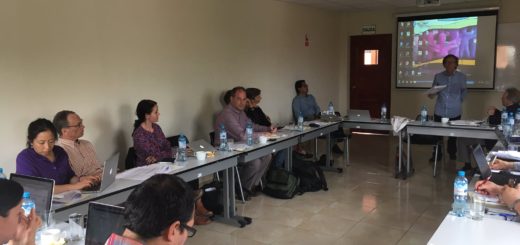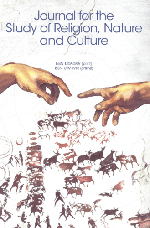Whitney Bauman on Developing a Critical Planetary Romanticism
We’re excited to share this new piece from Whitney Bauman just published by Counterpoint. In this new piece Bauman develops an argument for what he calls a “Critical Planetary Romanticism” or a “CPR for the earth.” This is an approach to global environmental problems that takes the diversity of embodied experiences seriously and approaches these questions through a “Romantic” and critical theory lens. In particular, Bauman wants to ask, what is the role of religion in this picture?
Here is an excerpt from the piece:
In a recent blog, I wrote about the idea of a “critical Romanticism.” I have now come to think about this as a Critical Planetary Romanticism (CPR) for the earth. Again, it must be critical in order to address the fact that everyone’s embodiment within a given world experiences that world differently. Thus, we need critical theories to keep us focused on the ways in which worlds treat some bodies better than others, and in some cases completely ignore or abject certain bodies. Such theories must be planetary in scope in order to prevent such Romanticism from becoming too closely associated with one’s own experience, culture, language, bioregion, or nation. Finally, it must be Romantic so that we humans acknowledge our embeddedness within the evolving planetary community.
In this blog post, I’d like to think about what “religion” might mean from within this CPR for the earth. What constructive role might/can religion play within and on behalf of the planetary community? If we take religion in both of its etymological senses—broadly (relegere) as reconsidering, re-reading or re-thinking, and more narrowly (religare) as binding back or re-assembling—then we might very well think of religion as critical (re)attunement to the worlds in which we live: reconsidering new experiences and evidence in the world and re-assembling the world in new ways.
On the one hand, this is not so new. As John Cobb notes, at the beginning of many new religious movements lies a “secular moment”—a critical moment in which there is recognition of the injustice of a given world (Egyptian, Roman, Indic, etc.), and a person or group of people begin to call out that injustice and argue for a new way of living in the world. This can be understood as people (re)attuning to the world in ways that recognize the destructive nature of that world toward many earth bodies (human and non). The many different negative, apophatic, and mystical traditions within religions also help to break open that which we think we know, opening us onto an evolving reality that is quite different. Or we might think of the ways in which many religious traditions involve journeys—such as through deserts, dark nights of the soul, shamanic journeys that enable humans to take on different earth bodies and forms, dream journeys that reconnect us with ancestors, and “temporary mobility” rituals (formerly and popularly known as walkabouts) that mark transitions from youth to adulthood. All of these journeys (and more) help the follower (re)attune to the world(s) around them: human, animal, plant, and ancestral. In many ways, the idea of religion as (re)attunement is nothing new. On the other hand, the idea of (re)attuning to the worlds (in the plural following the insights of the Zapatistas, brought to my attention by Walter Mignolo’s work) in which we live as a process rather than a goal—and from a planetary perspective—is quite new.
You can read the full article online at Counterpoint.











